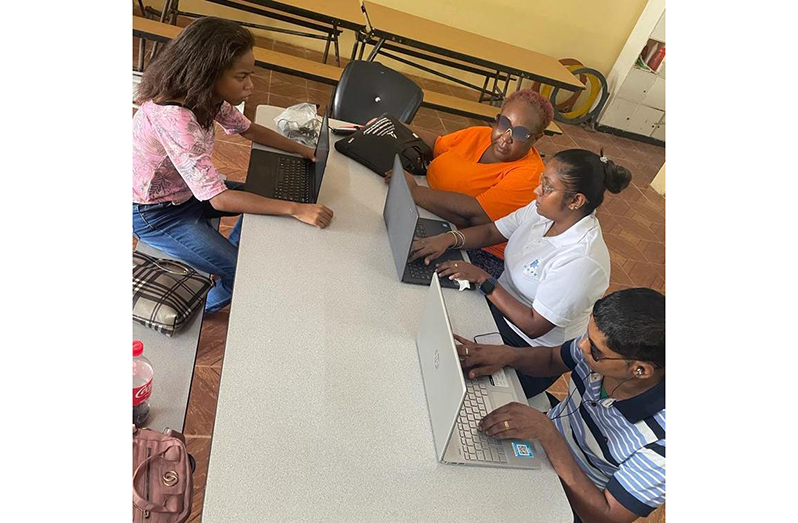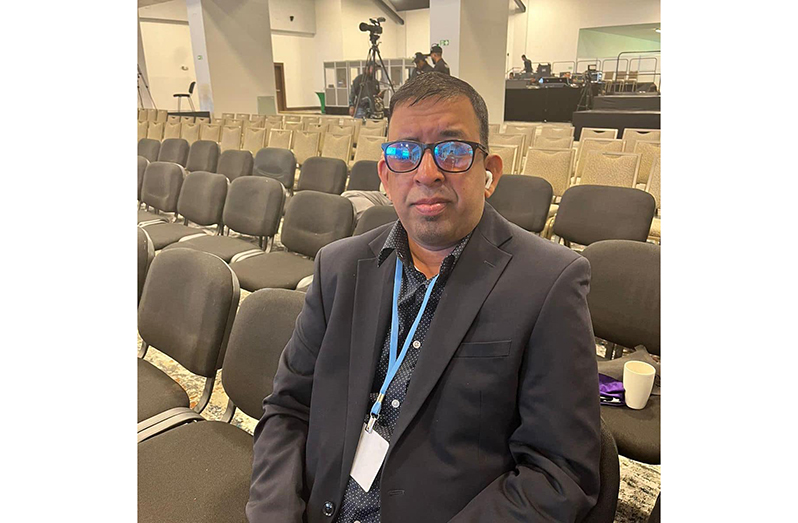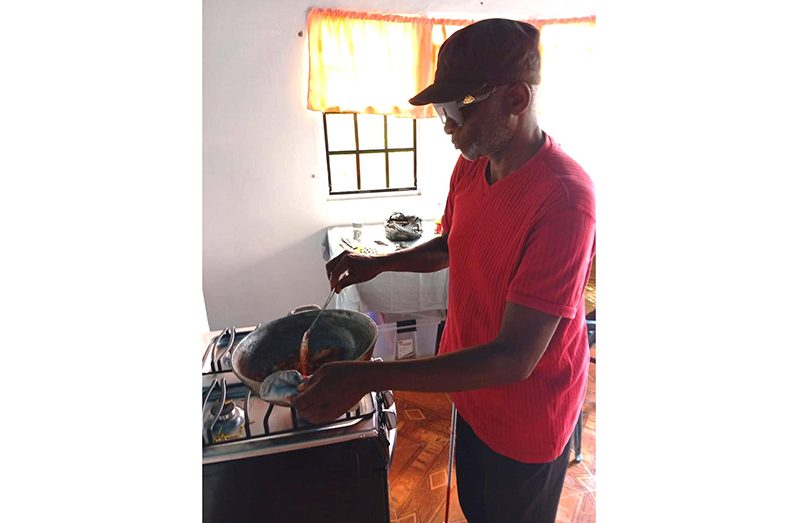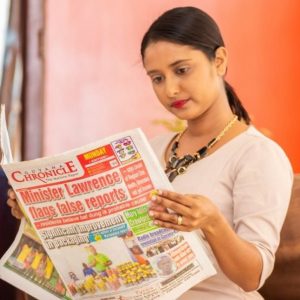To those who are blind or visually impaired
FOR persons who are blind or visually impaired, completing even the simplest of tasks can seem daunting and like a mountainous endeavour, unless, of course, they are equipped with the right set of skills to aid them along. And this is what the Orientation and Mobility programme aims to do for them.
The Guyana Council of Organisations for Persons with Disabilities (GCOPD) started the programme in January 2022, and thanks to funding from ExxonMobil, hundreds of persons in the disability community would have so far been able to tap into such training.
Apart from navigational and mobility skills, those who are blind and visually impaired are taught to use the white cane effectively, along with assistive technology such as the computer with the JAWS software, their mobile phones, tablets with screening reading software, and the like.
Most of the phones would have the text-to-speech feature, so they’re taught how to use it and do simple chores in their homes like cooking, navigating the rooms, and so forth.
“This programme was absent for many years in Guyana. It was existent between 2005 and 2007 but it was suspended,” GCOPD Programme Director, Ganesh Singh, shared with Pepperpot Magazine.

But something had to definitely be done to reactivate it. “For these persons, it is essential that they acquire independent living skills because, without them, they are unable to function independently and unable to be productive. For example, a blind person who is highly educated with their CXC subjects; if they don’t know how to use the computer or navigate independently, or use public transportation, how would they get a job? How would they go to work?” Singh pointed out.
When the programme started, it ran for one year, and within just that period, some 450 persons benefitted. One of the things that make it particularly effective is that the programme is being implemented by officers who are either blind or visually impaired. They thus have the experience, in addition to the training they would’ve received from GCOPD, to provide the kind of hands-on training to those in need.

Sharing an experience of a beneficiary whom he knew of, Singh related: “An older gentleman, about 51, is very limited with his academic background. He had no idea how to use a smartphone. Now, he can use Facebook and WhatsApp to call his family. He was blind all his life and didn’t know how to use a smart device. We are also working with children to learn these skills so they can be able to function fully in school.”
A technique to everything
Lata Devie Jagmohan is one of the mobility officers who acquired a vision disability roughly 11 years ago when she was just 18 years old. Understanding the challenges quite well, she said it was easy for her to share her knowledge and teach the programme contents to others.
“We teach how to navigate your stove, how to turn over your shirt, make your bed, sweep and wipe out. There’s a technique to everything. Sometimes these ones develop their own techniques and we learn from them as well,” Jagmohan shared, adding, “We also teach assistive technology in terms of the software needed and how to use their devices; how to use your cane, because it’s not about just holding it and walking.”
Jagmohan would mostly work with persons in Berbice communities where she grew up, visiting their homes with other mobility officers to teach. The layout of things in their homes would of course, be different, so the in-person visit is often invaluable.
“We teach colour contrasts to those who are visually impaired. If you have a white stove, get black pots.


For those totally blind, we advise them to get to know their stove; hold it, explore it, get used to the width, the size, the distance between each burner; keep feeling it, touching it, playing with the knobs.”
Currently, the programme is being rolled out in Regions Two, Three, Four, Five, Six, and 10. The officers are willing to work with more persons wherever they are because they understand how important these skills are.
The programme is free, and people who would like to benefit can call 611-0818; they can send a message on Facebook or call the Guyana Society for the Blind on 226-4496.








.png)







